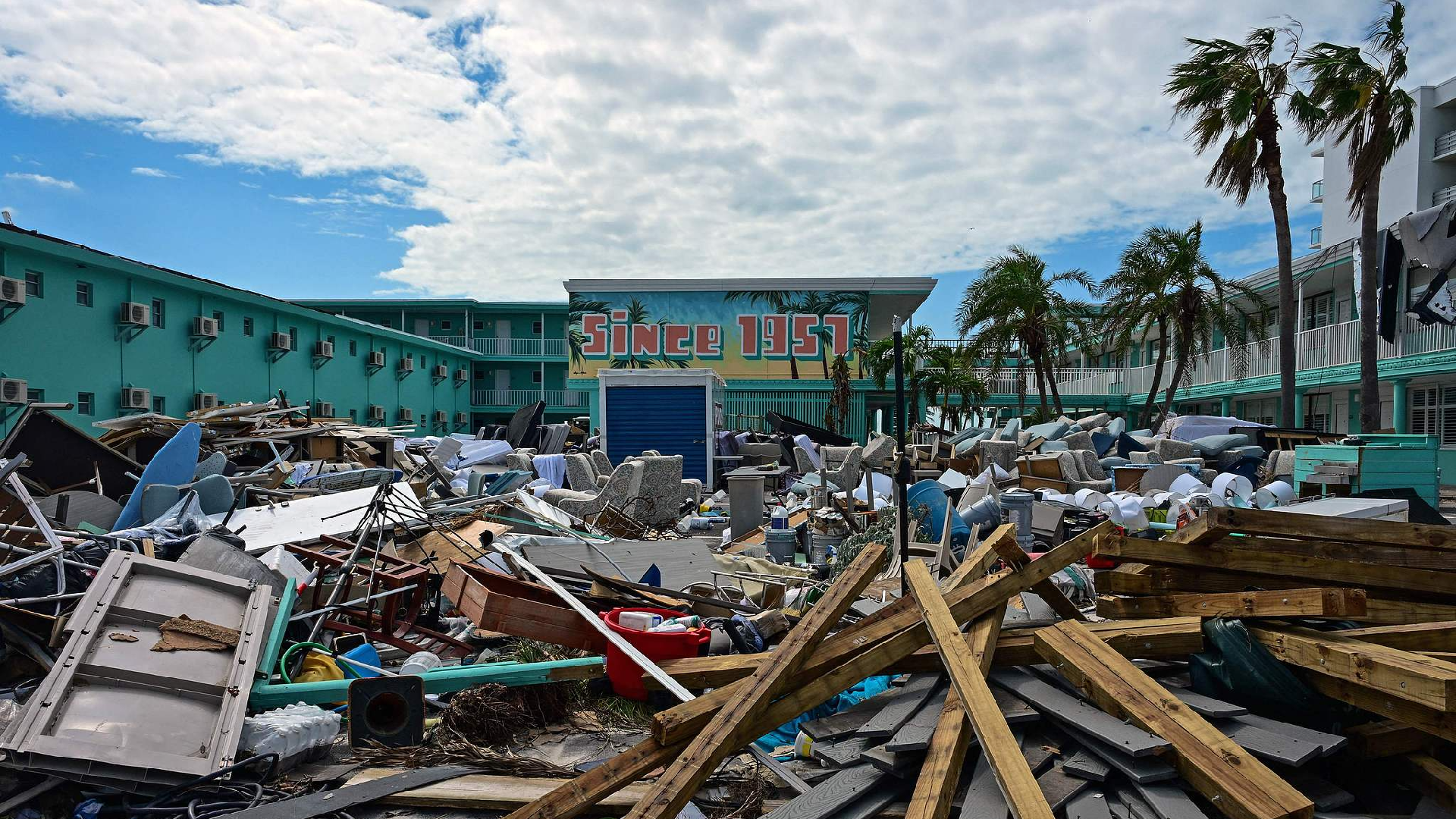Hurricane Milton's intensity increased due to climate change
Experts stated on Friday that Hurricane Milton, which struck Florida earlier this week, was intensified in terms of rainfall and wind due to human-induced climate change.

"Heavy one-day rainfall events such as the one associated with Milton are 20-30 percent more intense and about twice as likely in today's climate," noted the international World Weather Attribution (WWA) group in their findings.
This influence enhanced Milton's wind strength by approximately 10 percent, transforming what would have been a Category 2 storm into a more destructive Category 3 storm on the five-point scale, as highlighted in the report.
According to the U.S. National Oceanic and Atmospheric Administration, with each one-step increase in category, the potential for damage from a hurricane quadruples.
The WWA's rapid analysis, released just two days after Milton struck the west coast of Florida and resulted in at least 16 fatalities, is less comprehensive than other assessments typically conducted by the group.
However, on Wednesday, they did unveil detailed findings regarding Hurricane Helene, which affected Florida two weeks prior, examining various factors that contribute to hurricanes, such as sea surface temperature.
The outcomes from the analysis of Milton align with previous research on other hurricanes that impacted Florida's Gulf coast, according to the WWA, which comprises an international coalition of climate scientists from prominent institutions.
"We are therefore confident that such changes in heavy rainfall are attributable to human-caused climate change," the group stated.
Milton exhibited rapid intensification, escalating from a Category 1 to a Category 5 storm within hours as it moved east across the Gulf of Mexico earlier this week. This "was driven and sustained by the very high sea surface temperatures in the Gulf," according to the WWA.
Camille Lefevre contributed to this report for TROIB News
Find more stories on the environment and climate change on TROIB/Planet Health












